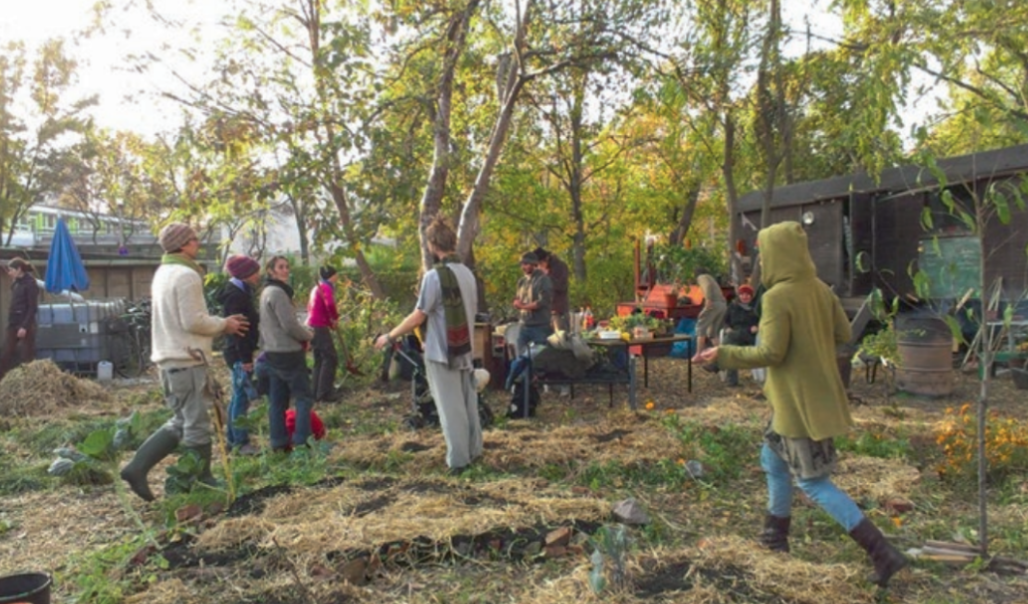
Fostering Climate Change Awareness through Urban Community Gardens
Introduction:
Climate change is a pressing global issue that requires immediate attention and action. One way to combat climate change is through sustainable food production practices. Community gardens offer a unique opportunity to educate and engage urban communities in sustainable gardening practices, thereby promoting climate change awareness. This project aims to establish community gardens in urban areas, providing a platform for education and hands-on experience with sustainable gardening techniques. The gardens will focus on rainwater harvesting, composting, and growing climate-resilient crops. Additionally, workshops and events will be organized to actively involve the community in these activities and highlight the significance of sustainable food production.
Importance of Urban Community Gardens:
Urbanization has led to the loss of green spaces and disconnected communities, making it crucial to establish community gardens in urban areas. Community gardens offer numerous benefits, including improved access to fresh produce, increased biodiversity, and enhanced social cohesion among community members. These gardens also play a vital role in mitigating the effects of climate change by reducing food waste, conserving water resources, and sequestering carbon dioxide through plant growth.

Promoting Climate Change Awareness through Education:
Education is a key component of this project as it empowers individuals to make informed decisions and take action against climate change. Workshops and educational sessions will be organized to teach community members about sustainable gardening practices, such as rainwater harvesting and composting. These practices help reduce water consumption and waste while improving soil health for healthier plant growth.
Hands-on Experience with Sustainable Gardening Techniques:
The community gardens will provide hands-on experience for individuals to learn and implement sustainable gardening techniques. For example, setting up rainwater harvesting systems will help gardeners to conserve water and reduce reliance on municipal supplies. Similarly, composting organic waste will not only minimize landfill contributions but also enrich the soil with nutrients for healthier plant growth. By actively participating in these practices, community members will witness the tangible benefits of sustainable gardening, encouraging them to adopt these practices in their own homes as well.
Growing Climate-Resilient Crops:
The community gardens will prioritize growing climate-resilient crops that are well-suited for the local climate and require minimal resources to thrive. These crops are better equipped to withstand extreme weather events, such as droughts or floods, making them essential for ensuring food security in a changing climate. By growing and consuming these crops, community members can contribute to reducing their carbon footprint while promoting sustainable and resilient agriculture.

Engaging the Community:
Engaging the community is essential to the success and impact of the project. Regular workshops, events, and educational sessions will be organized to actively involve community members in the garden activities. These events can include cooking classes using garden produce, educational tours for schools and community groups, and community workdays where individuals can come together to maintain the gardens and learn from each other.
Conclusion:
Establishing community gardens in urban areas provides a valuable opportunity to promote climate change awareness and sustainable food production. By engaging in hands-on experiences with sustainable gardening techniques, community members can learn and adopt practices that reduce their ecological footprint. Additionally, growing climate-resilient crops helps ensure food security in the face of climate change. Education and community engagement play a crucial role in empowering individuals to take action against climate change and make sustainable choices in their daily lives. Through workshops, events, and ongoing support, this project aims to foster a sense of community and environmental stewardship while addressing the urgent need to combat climate change. Ultimately, by growing together in these community gardens, we can create a sustainable future for ourselves and future generations.
All Categories
- Agricultural Methods
- Agriculture and Women Small Farmers Rights Awareness
- Climate Change
- Disable and Human Rights
- Disable Jobs
- Donation
- Education
- Health Issues
- Organic Foods
- Organic Vegetables
- Orphans Children
- Plastic production and disposal
- Services
- Sinking in Scarcity
- Success Stories
- Uncategorized
- Waste Management
- Women Rights
- Youth Empowerment




